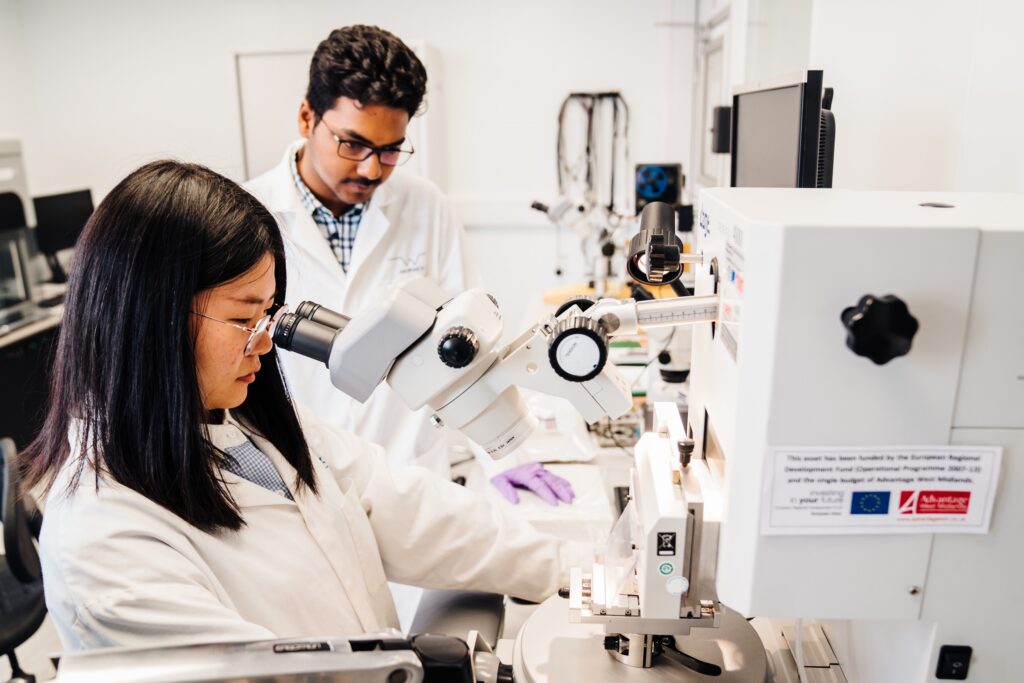Inverter testing equipment developed at the University of Warwick’s School of Engineering is said to revolutionize the inverter analysis process. Automotive manufacturers will typically assess inverters with motors at high-cost dynamometer facilities with concrete bunkers containing high-speed equipment failures, according to the university. The test bench at the UK university is smaller, less costly, easier to access and enables developers to test components such as the inverter without the motor. It has already been used by BMW to analyze its new power inverter.
Developed by Professor Phil Mawby, professor of power electronics, and his team, the facility has seen an investment of almost £900,000 (US$1m) from the £33m (US$39.6m) Driving the Electric Revolution Industrialisation Centres (DER-IC), part of the Driving the Electric Revolution Challenge at UKRI. The WMG Centre High Value Manufacturing Catapult at the University of Warwick also contributed £300,000 (US$360,000) in funding.
Mawby explained, “At a fraction of the size and cost of its commercial competitors, this equipment will help revolutionize inverter testing. Funding from Driving the Electric Revolution and HVMC made it possible for us to procure crucial pieces of equipment, including parts of the cooling system and battery emulator. I couldn’t have completed it without the fantastic team I work with, who have all contributed immense effort and value to drive the project forward and produce this unique facility, which will help encourage businesses from an array of industries to use the UK as a base for product testing.”
BMW and the University of Warwick are both part of the @FutureBev initiative, which has four other partners, and which aims to develop a UK supply chain to support the transition of BMW to SiC-based power electronics in its future generations of electric vehicles.
David Bock, BMW Group’s technical project lead for @FutureBEV, commented, “@FutureBEV with Warwick University is demonstrating the ability of industry and academic partners coming together to deliver accelerated technologies to market. The access to a strong academic base with matched development and test hardware enables rapid implementation of ideas from drawing board to real hardware.
“The investment from DER-IC is one of the enablers for this, ensuring the facility is tooled with the latest test equipment, meaning the university is ready and able to support business. The @FutureBEV team directly benefit from quick access to the BEV-specific test equipment, enabling risk reduction as well as improving the change of emerging technologies to be implemented in new designs.
“The net benefit is through this collaboration we can bring these CO2 -reducing technologies to the road quicker while keeping the business case and enabling the next generation of engineers. It’s an exciting time for powertrain and shows well-targeted investment from Warwick University and the @FutureBEV partners.”
Several other UK car makers are said to have expressed interest in the new inverter test center. The technology could also be applied in other sectors.


